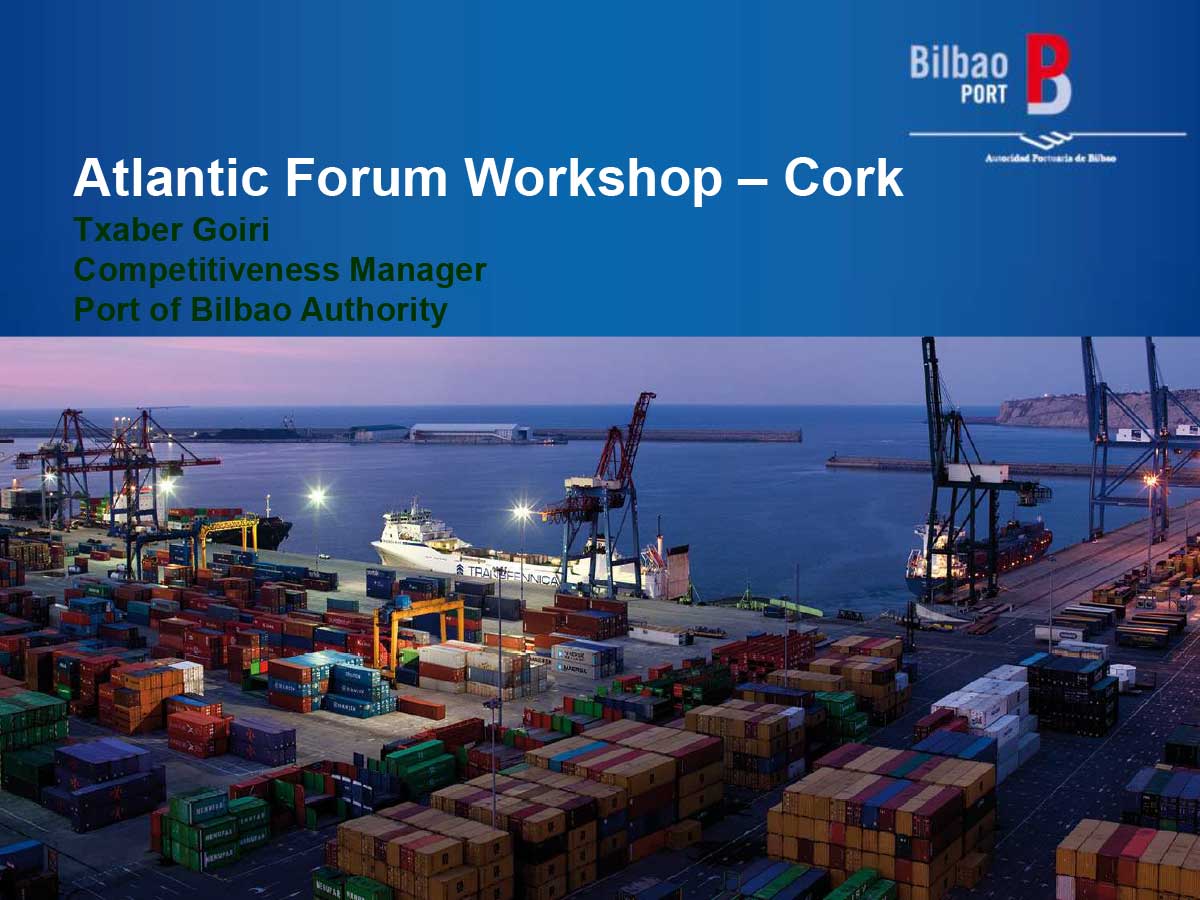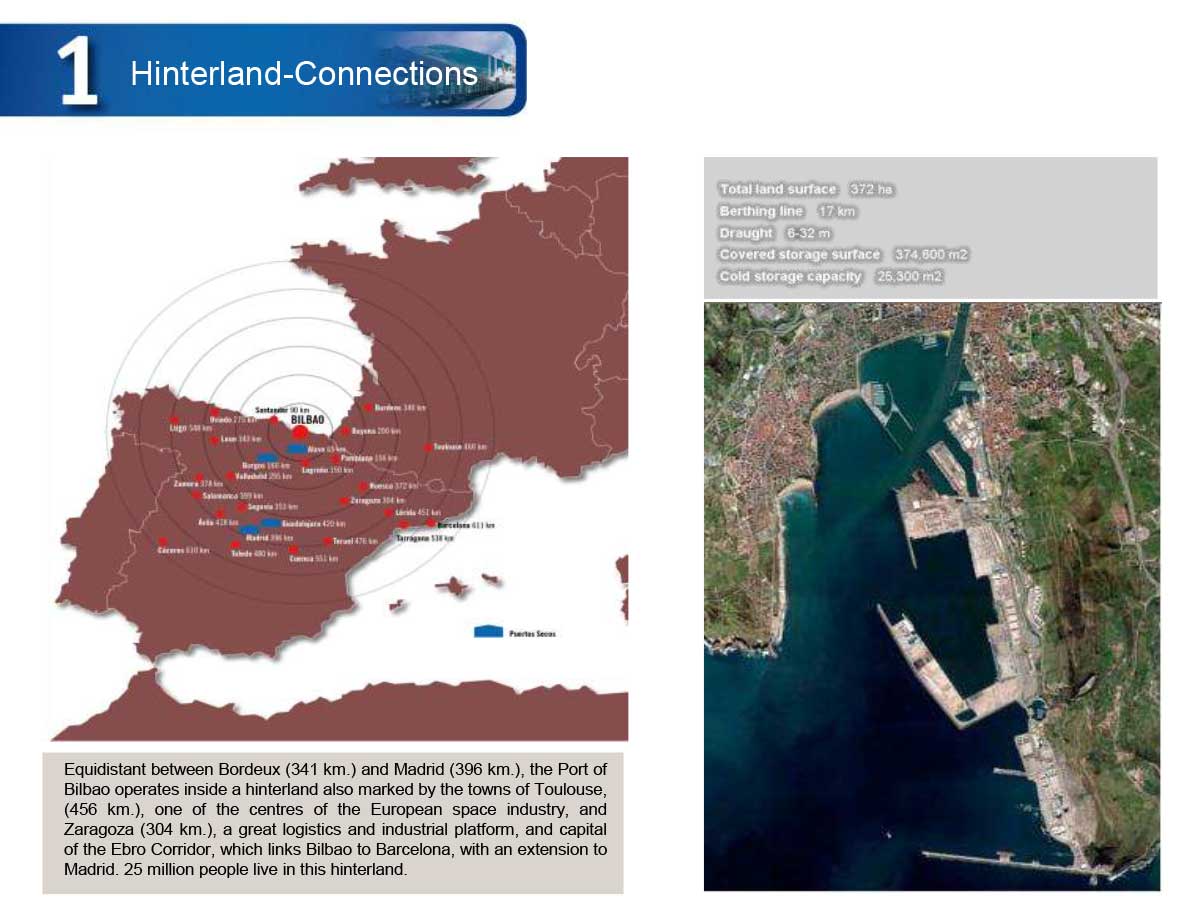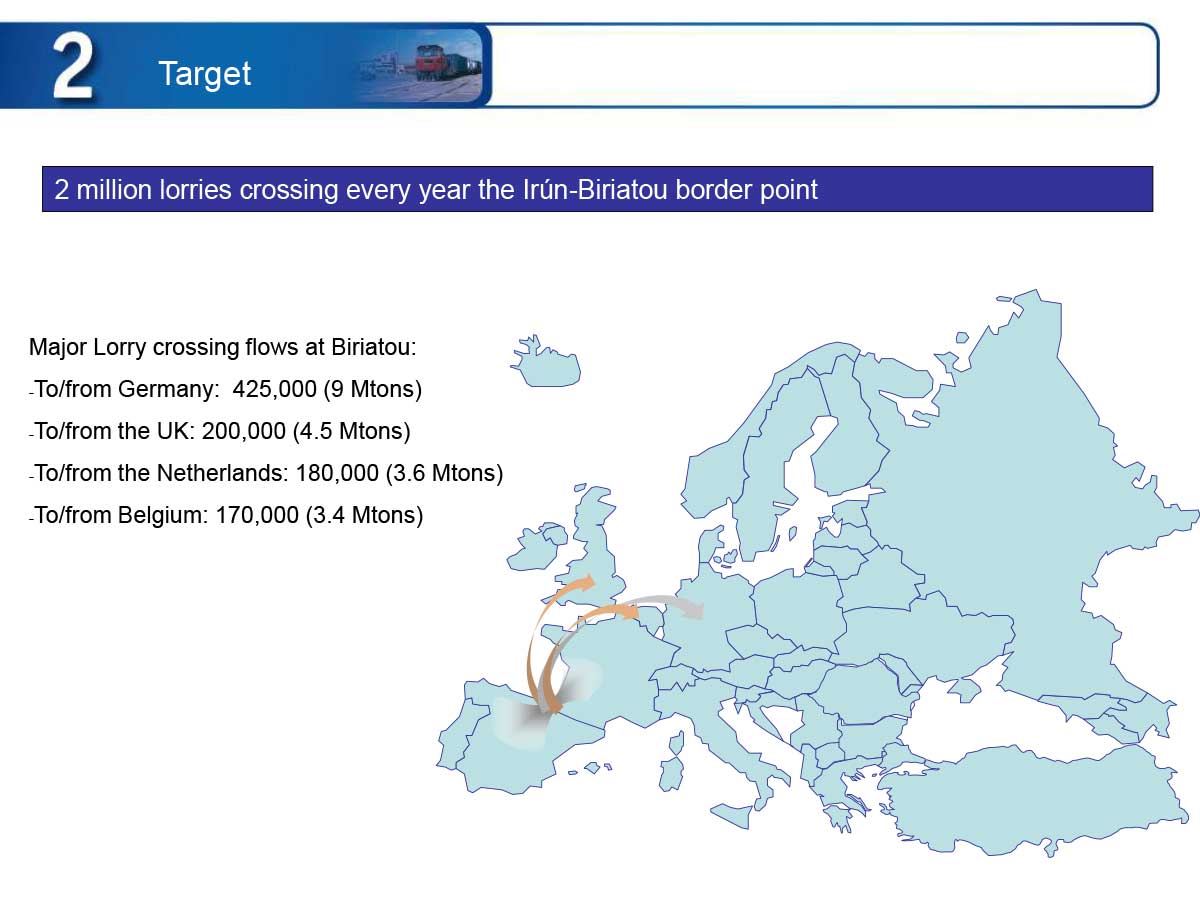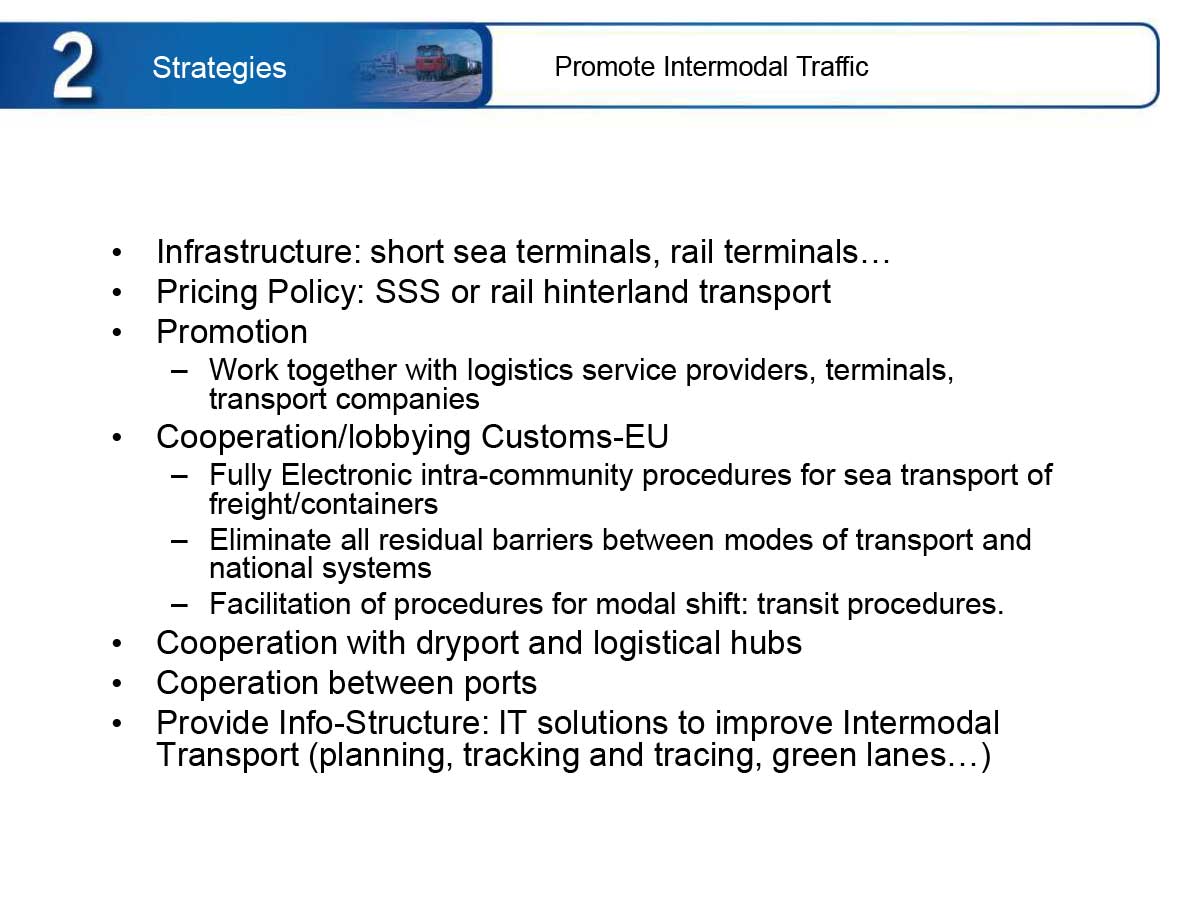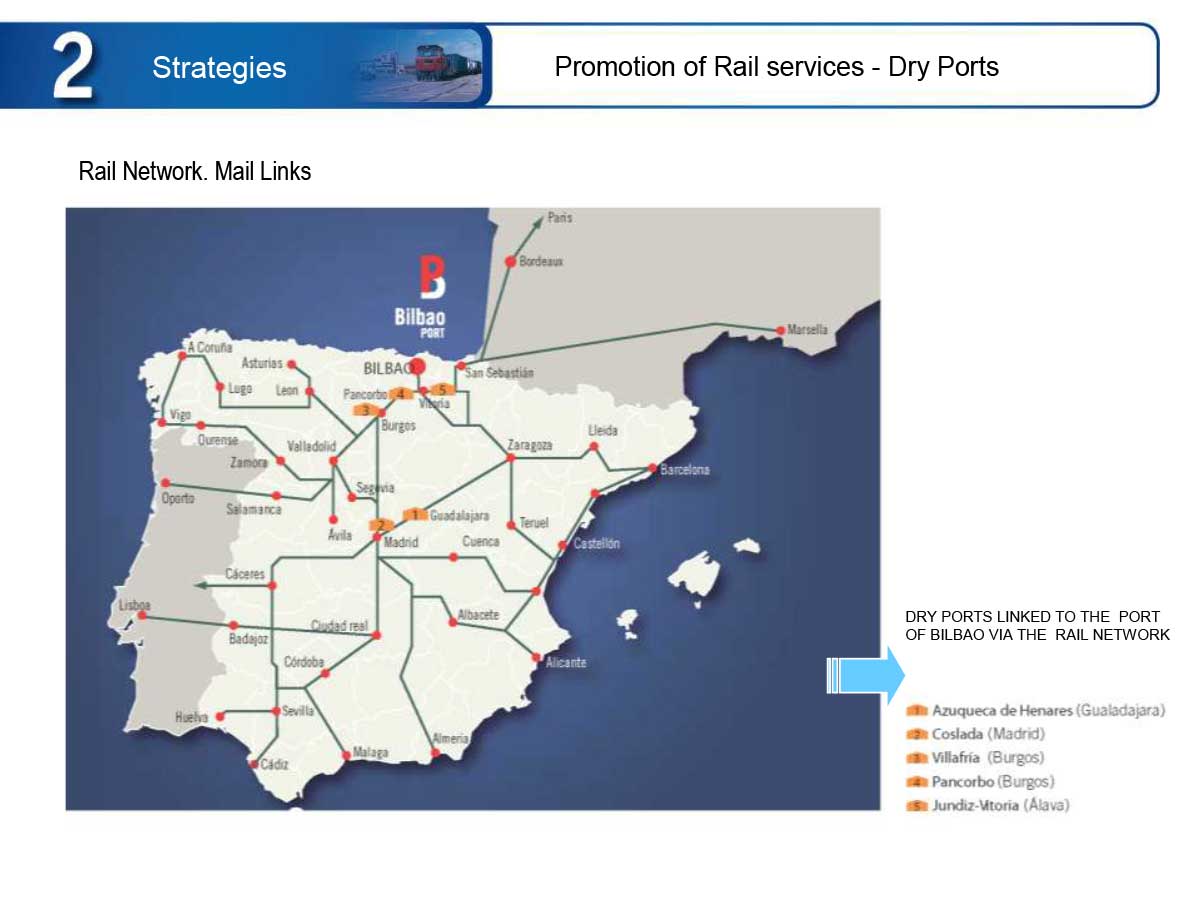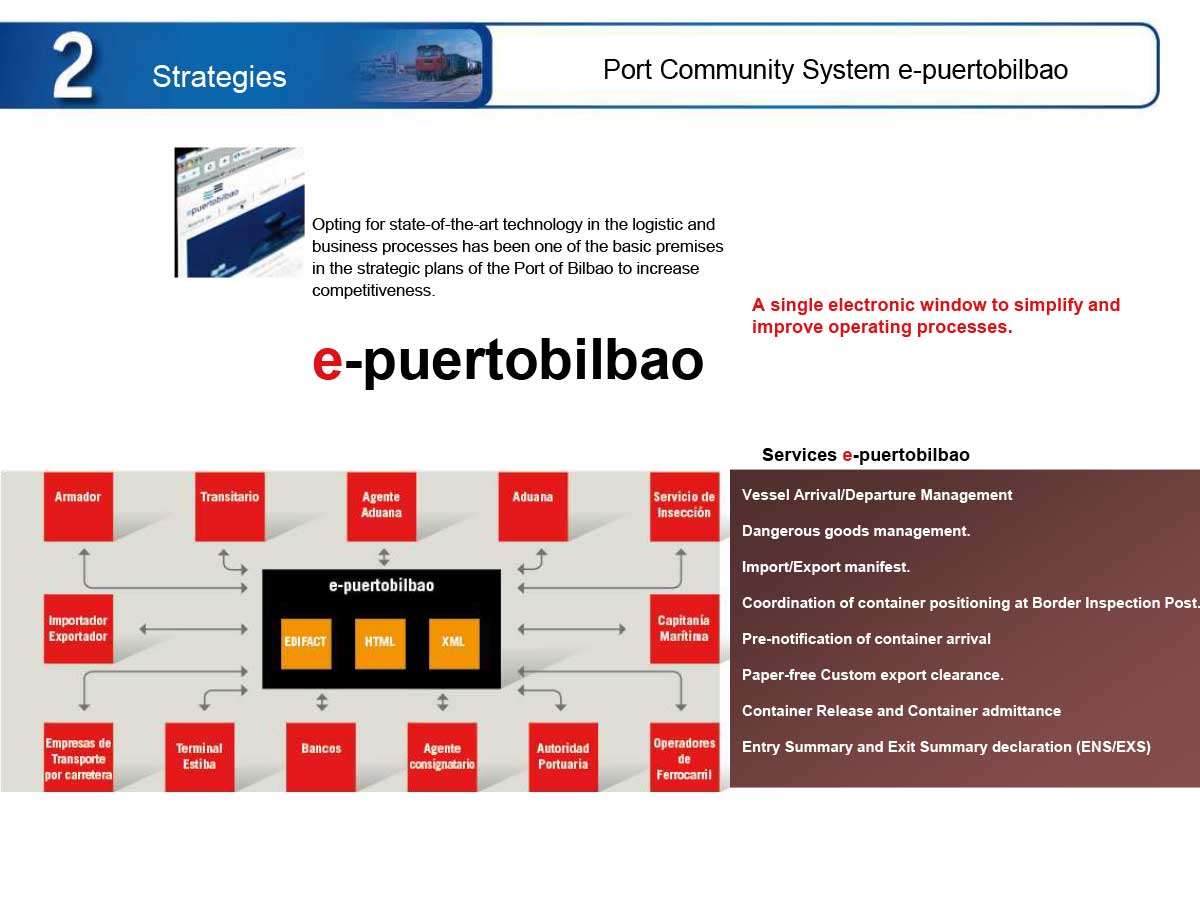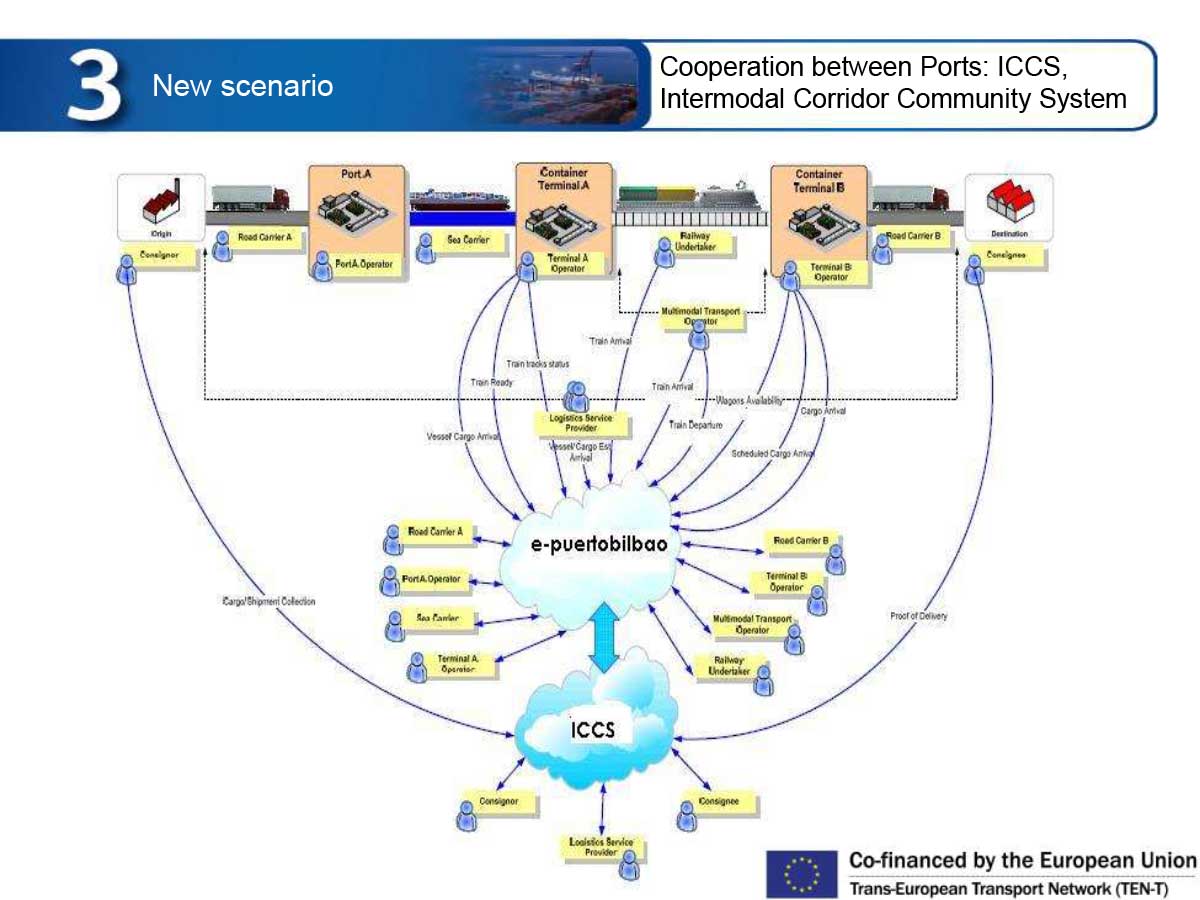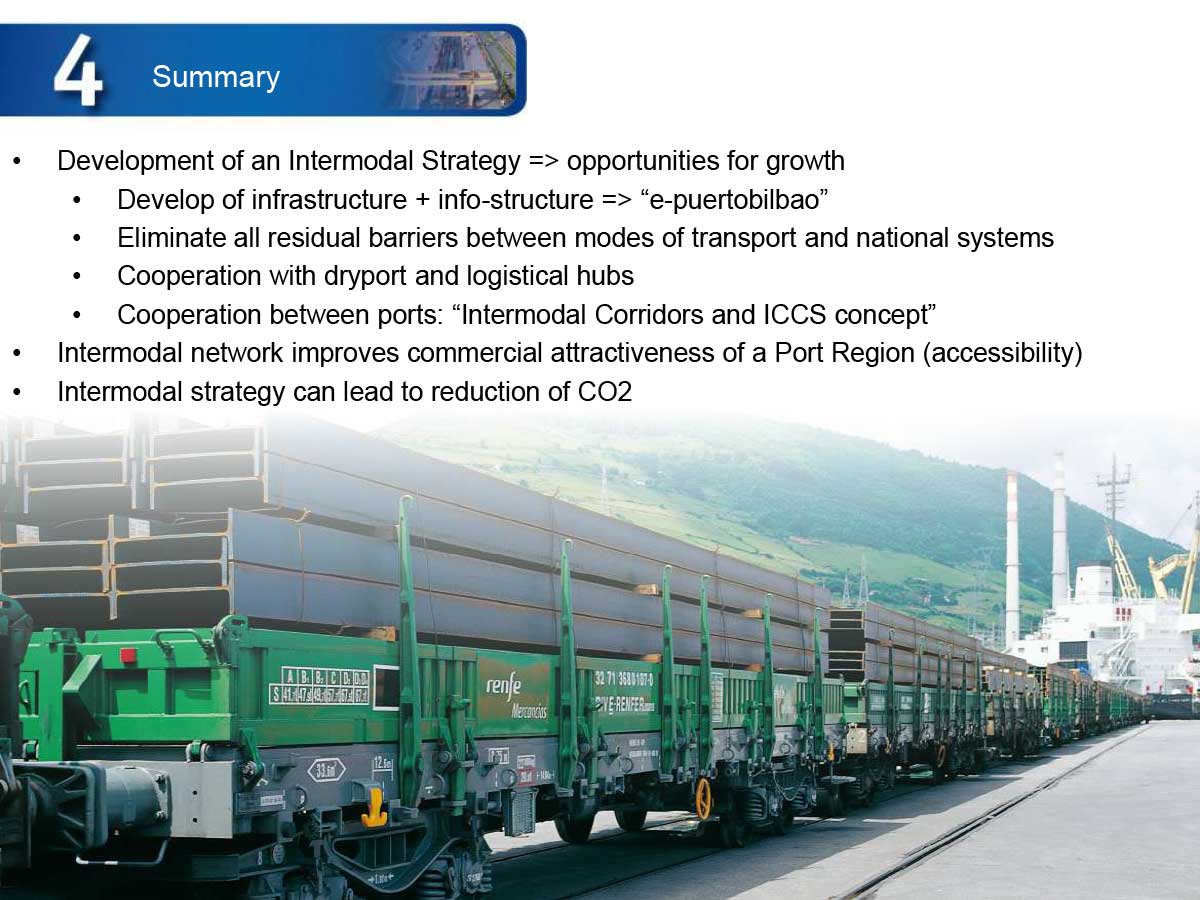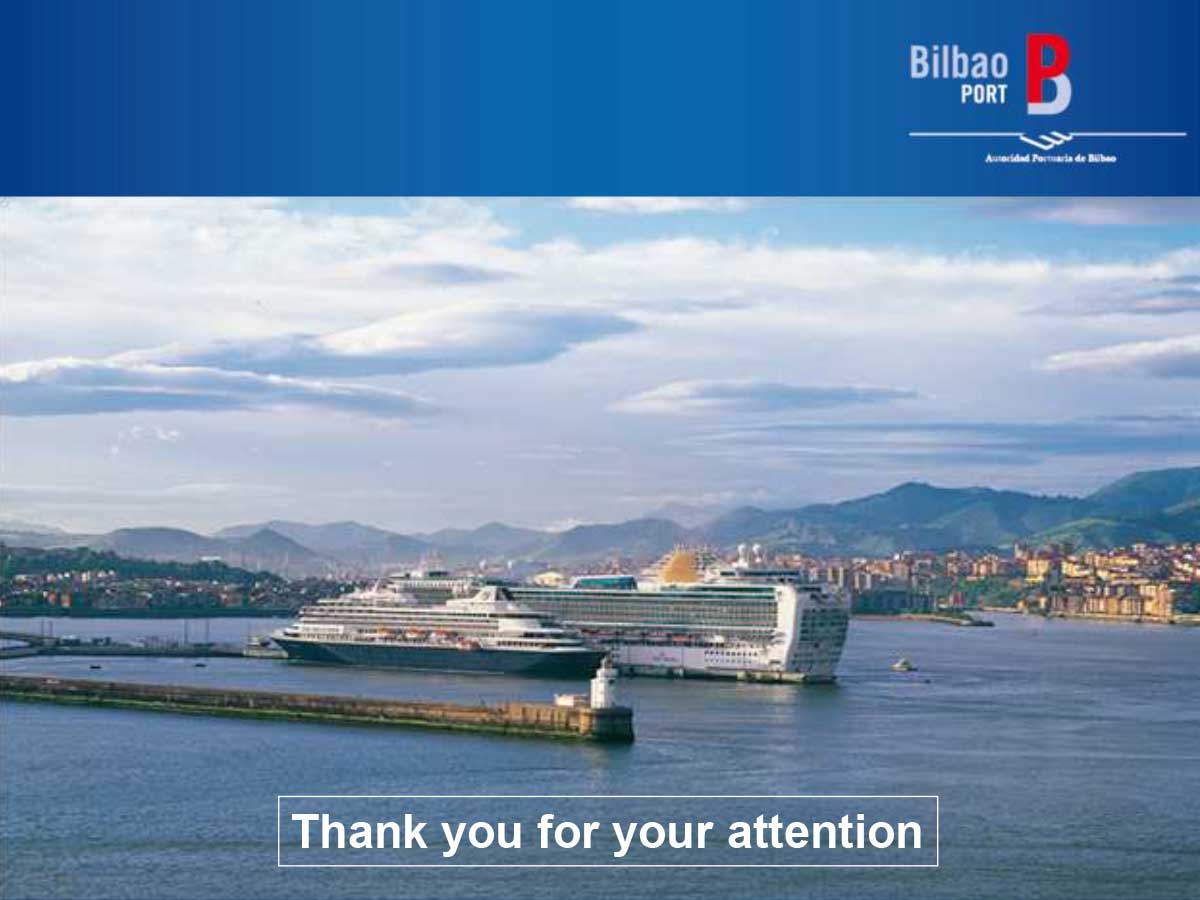The Port of Bilbao has presented its strategy for the development and promotion of intermodal transport at the forum held from 4-5 March in the Irish city of Cork. At this forum the European Union unveiled its plan of action and funding mechanisms for the Atlantic Arc for the 2014-2020 period in the areas of Port Research, Innovation and Development.
The Head of Competitiveness of the Bilbao Port Authority Txaber Goiri undertook to share with the attendees the strategy of this enclave in which he highlighted, as an added value, the telematic services of the Port of Bilbao. In this respect, he referred to the development of specific maritime terminals for short-haul maritime transport, the railway terminals available, the specific pricing policy to support short-haul maritime traffic and the entry/exit of goods by railway.
Added-value services
Goiri highlighted the considerable promotion effort that is being made in co-operation with logistics operators, terminals and transport companies. At the same time, he praised the co-operation with Customs nationally and internationally to gradually eliminate barriers and the fact that the goods that use intermodal transport in its maritime-railway aspect should enjoy the same customs treatment as that transported exclusively by road.
The participation of the Port of Bilbao in the development of inland logistics platforms and the added-value services of the e-puertobilbao telematics platform took up much of the presentation. In addition, attention was drawn to the IBUK-Intermodal Corridor project to develop an intermodal corridor between the hinterland of the Port of Bilbao and the United Kingdom. This project, co-funded by the European Union within the TEN-T programme, also provides for the development of telematics services in e-puertobilbao.
These services are included in a so-called Intermodal Corridor Community System that focusses on providing electronic management services to support the flow of the means of transport and goods along the above-mentioned intermodal corridor. In this case, and for the first time the platform’s services will be providing for the whole door-to-door transport chain, so various integrations will need to be carried out with similar systems in the United Kingdom.
By way of conclusion, mention was made of the importance of having available a powerful Intermodal transport network so that the area can present itself as commercially attractive, and accessible. For the Port Authority representative, a smart combination of maritime, railway and road transport is essential with a view to offering sustainable transport in the medium term.

